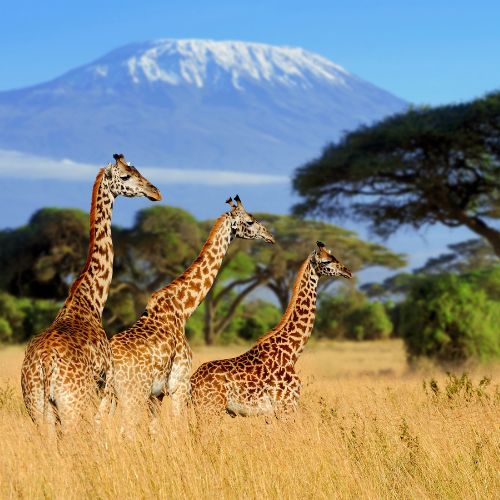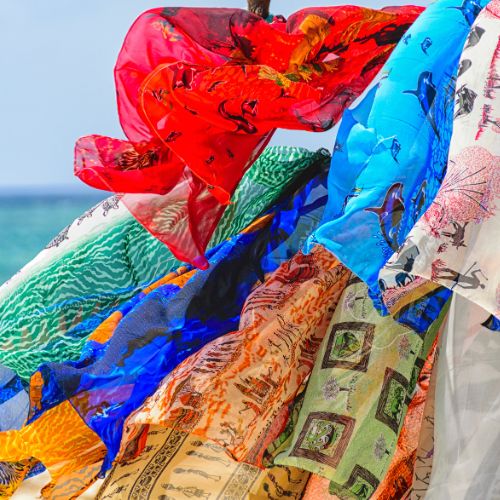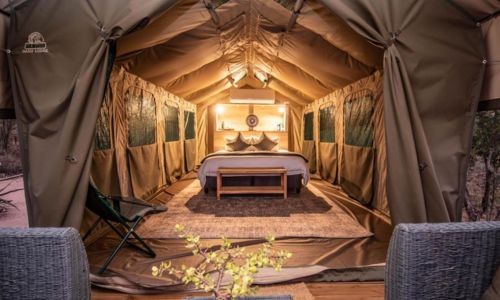Embarking on an African safari promises breathtaking encounters with wildlife, landscapes straight out of nature documentaries, and stories your clients will brag about for years. The things you need to know before going on an African safari go well beyond picking a destination or snapping a photo of a lion mid-yawn.
You must understand the rhythm of the wild, prepare for unpredictable elements, and help clients create memories without mishaps. Read on to learn everything there is to know about navigating the savannah like a seasoned pro.
1. Timing Is Everything: Seasons and Safari Success
Safari success depends heavily on timing. Africa operates on a schedule nature sets herself, and the animals don’t exactly show up on cue.
In East Africa, the dry season (June to October) becomes the ideal window for safaris. Vegetation thins, making animals easier to spot, and watering holes are frequented by every creature in the neighborhood. Southern Africa offers similar benefits during its dry months, typically May through September.
Travel agents must match client expectations with the right time frame. A family wanting to witness the Great Migration in the Serengeti? Aim for July to September.
Bird lovers hoping to see feathered flocks in full regalia? November to April is prime birding season in places like Botswana and Zambia.
Temperatures can vary wildly between regions and seasons, with chilly mornings quickly morphing into scorching afternoons. Suggesting layers can save your clients from becoming either human popsicles or walking puddles. By understanding the regional nuances and wildlife patterns, you position yourself as a travel agent with unforgettable safari timing.
2. Choosing the Right Country: Not All Safaris Are Created Equal
Africa is a massive continent with diverse ecosystems, cultures, and wildlife offerings. What works for a thrill-seeking solo traveler may not suit a honeymooning couple. Each safari destination offers a different experience, and your job is to know which one will suit your client.
Kenya and Tanzania steal the spotlight with iconic safari parks such as the Masai Mara and Serengeti. These countries serve up lion prides, cheetah chases, and the wildebeest stampede known as the Great Migration. South Africa, with Kruger National Park and luxurious private reserves, provides excellent infrastructure and malaria-free zones, which are perfect for first-timers or families.
Each country brings its own visa requirements, travel logistics, and health protocols. Knowing the political climate, currency quirks, and entry procedures is also essential.

3. Packing Smart: From Safari-Chic to Sensible Footwear
Travel agents who can advise on packing win extra brownie points. Packing for a safari revolves around practicality, comfort, and blending into the environment.
Start with neutral colors such as beige, khaki, and olive green. These shades help travelers avoid startling animals and keep bugs like at bay.
Suggest long-sleeved shirts and lightweight trousers for sun protection and warmth during cool mornings. Clients will thank you when the early game drive doesn’t involve frostbite.
Solid footwear matters more than fashion. Recommend closed-toe, comfortable shoes suitable for bush walks or long hours in a 4×4. A wide-brimmed hat, quality sunglasses, and strong SPF should also be on the list.
Remind clients that most charter flights have strict luggage limits, so packing light is imperative. Encourage reusable water bottles and compact first aid kits.
4. Accommodation Options: From Bare Bones to Bougie
Safaris offer many accommodations, from rustic campsites to luxury lodges with chandeliers hanging over bathtubs. Travel agents who understand this spectrum can better match clients to the experience they truly want.
Budget-conscious travelers might enjoy mobile tented camps that follow wildlife migrations. These camps provide basic comforts and unbeatable proximity to animals.
Mid-range lodges offer electricity, private bathrooms, and hearty meals served under the stars. High-end options come with plunge pools, personal butlers, and wine lists that rival five-star hotels in Paris.
Before booking, understand the client’s expectations. Do they want Wi-Fi in the wilderness or would they rather go offline and listen to the animals outside their tent? A mismatch here could turn a dream trip into a grumpy group chat of complaints.
5. Safari Etiquette and Safety: The Dos, Don’ts, and Definitely-Nots
The bush operates by clearly defined rules. Educating your clients on safari etiquette ensures their safety, protects the wildlife, and maintains a positive atmosphere for everyone involved.
First, staying inside the vehicle isn’t just a suggestion; it’s a life-saving mandate. If an animal seems docile and approachable, the reason is likely that you’re staying in your vehicle and out of their personal space. Clients should listen to guides at all times and avoid loud noises and sudden movements that might scare animals or other guests.
On a lighter note, guides appreciate polite guests. Tip generously, ask smart questions, and don’t interrupt mid-explanation. Safari life has a rhythm, and when everyone respects it, the experience becomes unforgettable.

6. Pre-Trip Prep: Health, Visas, and Expectation Management
Behind every dreamy safari is a mountain of paperwork, medical planning, and administrative details. Travel agents carry the responsibility of ensuring clients step off the plane ready for adventure rather than being denied entry or wrestling with preventable illness.
Vaccination requirements vary by country, but many African nations require proof of yellow fever vaccination, especially if arriving from a country where it’s endemic. Malaria prophylaxis is strongly advised in most safari zones, and travel insurance that covers medical evacuation is non-negotiable.
Clients should check passport validity since most countries require at least six months’ validity and a few blank pages. You can often arrange visas online, but some still involve embassy visits. Skip the guesswork by providing clear, updated guidance.
Set realistic expectations. Wildlife sightings aren’t guaranteed, and sometimes nature plays hide-and-seek.
Prepare clients for downtime, dusty roads, and the possibility of seeing zebras instead of leopards. But also, remind them that unexpected moments often become the most cherished memories.
Finally, help clients understand tipping norms, currency conversions, and local customs. When you iron out the wrinkles before departure, the safari itself becomes nothing but smooth trails and sweeping savannahs.
In conclusion, the things you need to know before going on an African safari include more than choosing a destination or packing sunscreen. Whether you’re recommending the best Kenya safari packages or guiding clients toward gorilla trekking in Rwanda, your expertise elevates the journey from a simple trip to a life-altering adventure. Prepare your clients well, and they’ll return singing your praises with gratitude.




